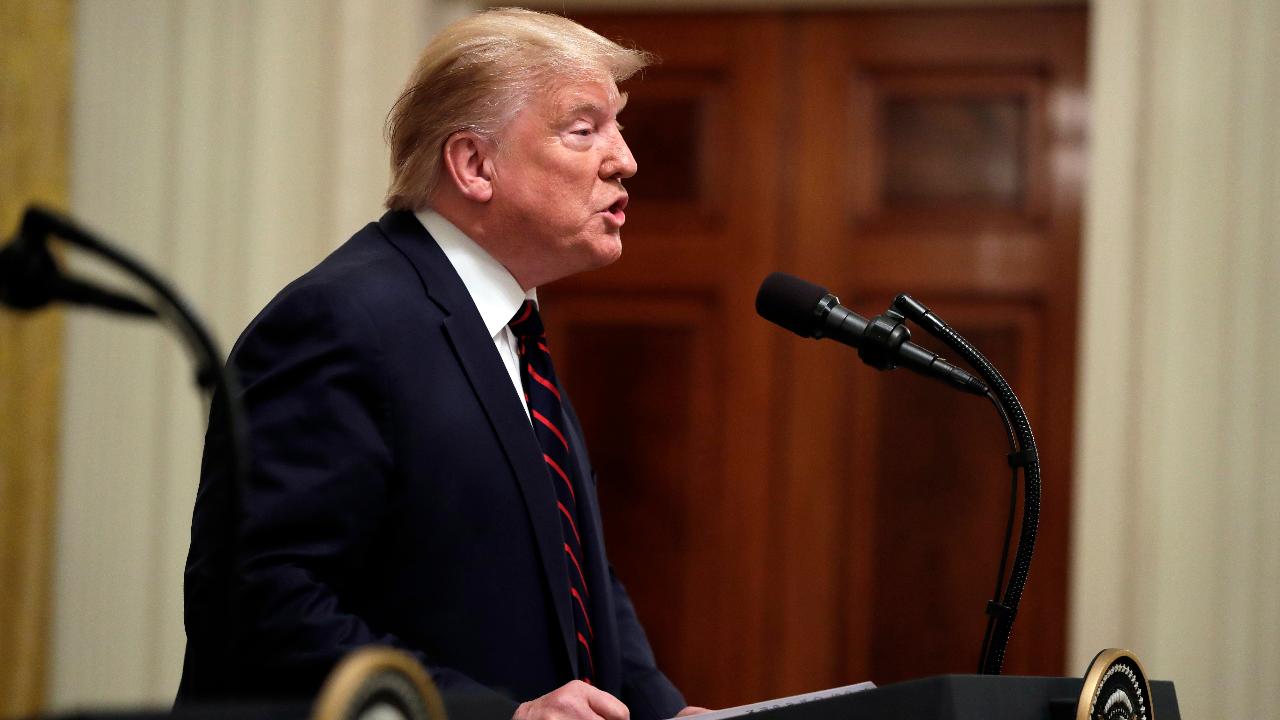Big tech target of French tax, a Trump response may put wine and cheese in the crosshairs
As the US and China work through lengthy negotiations to avert a trade war, the Trump administration is gearing up for another trade skirmish with a more unexpected foe.
The latest trade battle appears to be focusing on France, best known for its exports of wine and cheese rather than the theft of intellectual property that inspired the China trade contretemps, FOX Business has learned. At issue: a decision by the French government to impose a so-called GAFA tax targeting big tech companies such as Google, Amazon, Facebook and Apple (GAFA is an acronym of these companies).
Now the US is looking to respond by sticking French products, including wine and cheese, with new tariffs. In a statement released today, the United States Trade Representative announced it would make an announcement on whether to launch a wine and cheese trade war by Monday.
U.S. TRADE OFFICIALS FINALIZING INVESTIGATION INTO FRANCE'S DIGITAL TAX
The move is sure to sour the palates of the Cabernet and Camembert crowd — not exactly Trump base voters to begin with. Meanwhile, big tech companies and Wall Street analysts tell FOX Business they are trying to figure out just how much the GAFA tax will cost them.
| Ticker | Security | Last | Change | Change % |
|---|---|---|---|---|
| GOOGL | ALPHABET INC. | 322.86 | -8.39 | -2.53% |
| FB | PROSHARES TRUST S&P 500 DYNAMIC BUFFER ETF | 42.42 | +0.35 | +0.84% |
| AMZN | AMAZON.COM INC. | 210.32 | -12.37 | -5.55% |
| AAPL | APPLE INC. | 278.12 | +2.21 | +0.80% |
“When you consider how big global revenue is, this won’t have a significant impact on business,” Founding partner of MoffettNathanson Michael Nathanson tells FOX Business. Nathanson adds, “This isn’t a front-and-center issue because there’s so much smoke out there… everyone is waiting to see what happens.”
This digital sales tax charges tech companies 3 percent of the revenue they’ve earned in France. While that is a drop in the bucket for Google, Amazon, Facebook and Apple — three of which are valued near $1 trillion — it underscores the pressure these companies face as they increasingly become a target for regulators. Big tech is facing trouble on multiple fronts — from antitrust regulators at home to state attorneys general looking to break up the companies, to presidential candidates promising an end to tech monopolies.
Europe has also become a hostile territory for tech. The EU has adopted stringent privacy legislation in the form of General Data Protection Regulation (GDPR), which allows regulators to fine companies up to 4 percent of global revenue for violations of the policy. The EU has already fined Google close to $10 billion since 2017 for antitrust violations.
In July of this year, France passed a digital service tax on US multinational corporations — essentially tech companies making at least 25 million euros in Europe and 750 million worldwide. The tax was originally proposed by the European Union but failed to pass since it was viewed as putative and discriminatory.
“Facing the street protests of the yellow vest movement, the French government hopes to use the ingenuity of American tech companies as an emergency bailout fund,” said Congressman Ron Estes (R-Kan.), who is leading the charge against the French tax. Estes, a member of the House Ways and Means Committee, tells FOX Business. Estes adds the tax was motivated by “France’s economic predicament and social turmoil.”
GET FOX BUSINESS ON THE GO BY CLICKING HERE
One element that particularly rankles regulators and tech executives is that France is going rogue — unilaterally leveling a tax seemingly as a quick money grab, rather than working with the Organization of Economic Cooperation and Development (OECD). The OECD was put in place to implement a uniform tax code across all EU countries. Further irking US and tech officials, the tax is implemented retroactively, which means the companies will be responsible for revenue they’ve made since January 2019 and will raise an estimated $568 million for France. While some tech companies feel the tax is just a shakedown, France justifies it by saying these companies profit off French citizens.
A spokesperson for USTR did not return request for comment. Press officials at Google, Apple, Facebook and Amazon declined comment. Officials at the French embassy in the US did not respond to request for comment.
While the US response remains uncertain, more than 20 other countries, including Austria, Spain, Italy, Czech Republic, Britain and Canada are contemplating a similar move to the one France has made.
Estes tells FOX Business the tax “sets a dangerous precedent a number of countries are looking to follow… trying to balance the checkbook off American companies.”
GET FOX BUSINESS ON THE GO BY CLICKING HERE




















